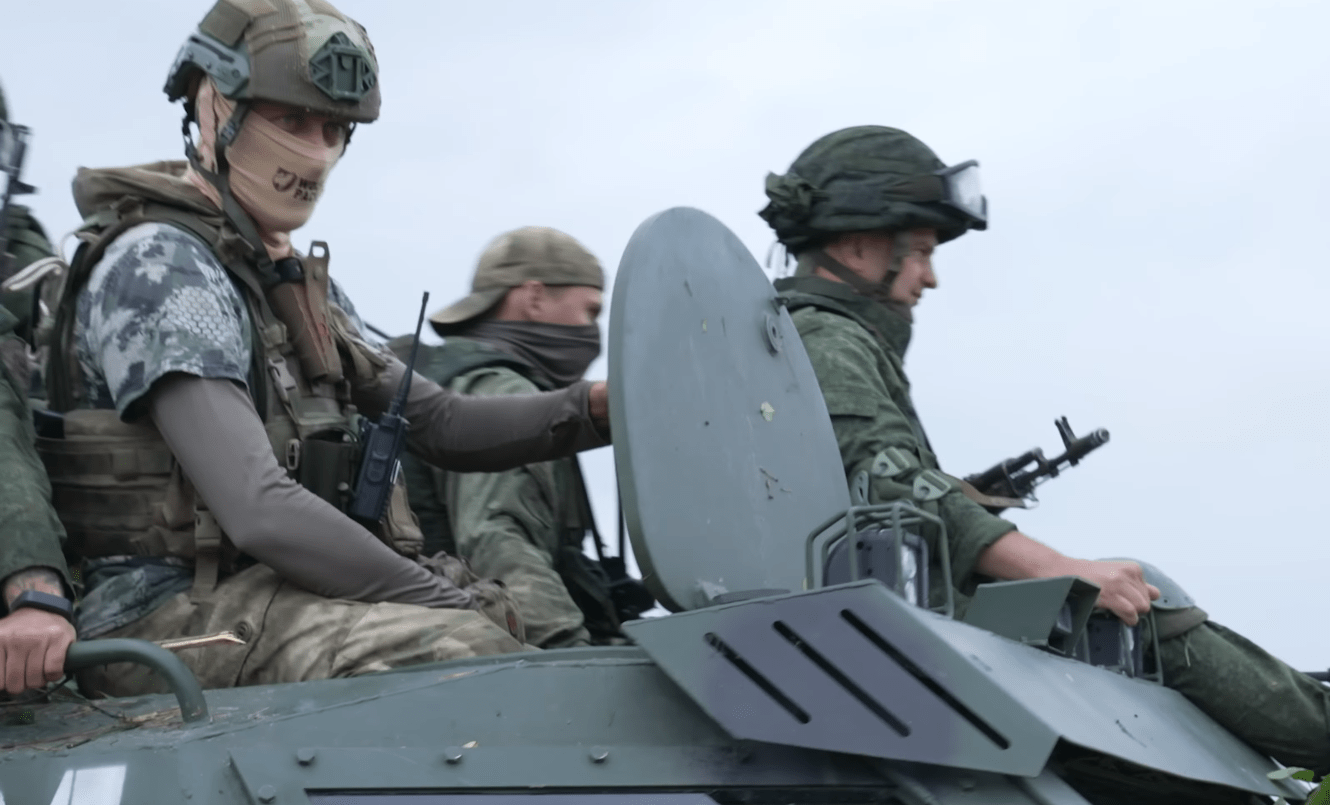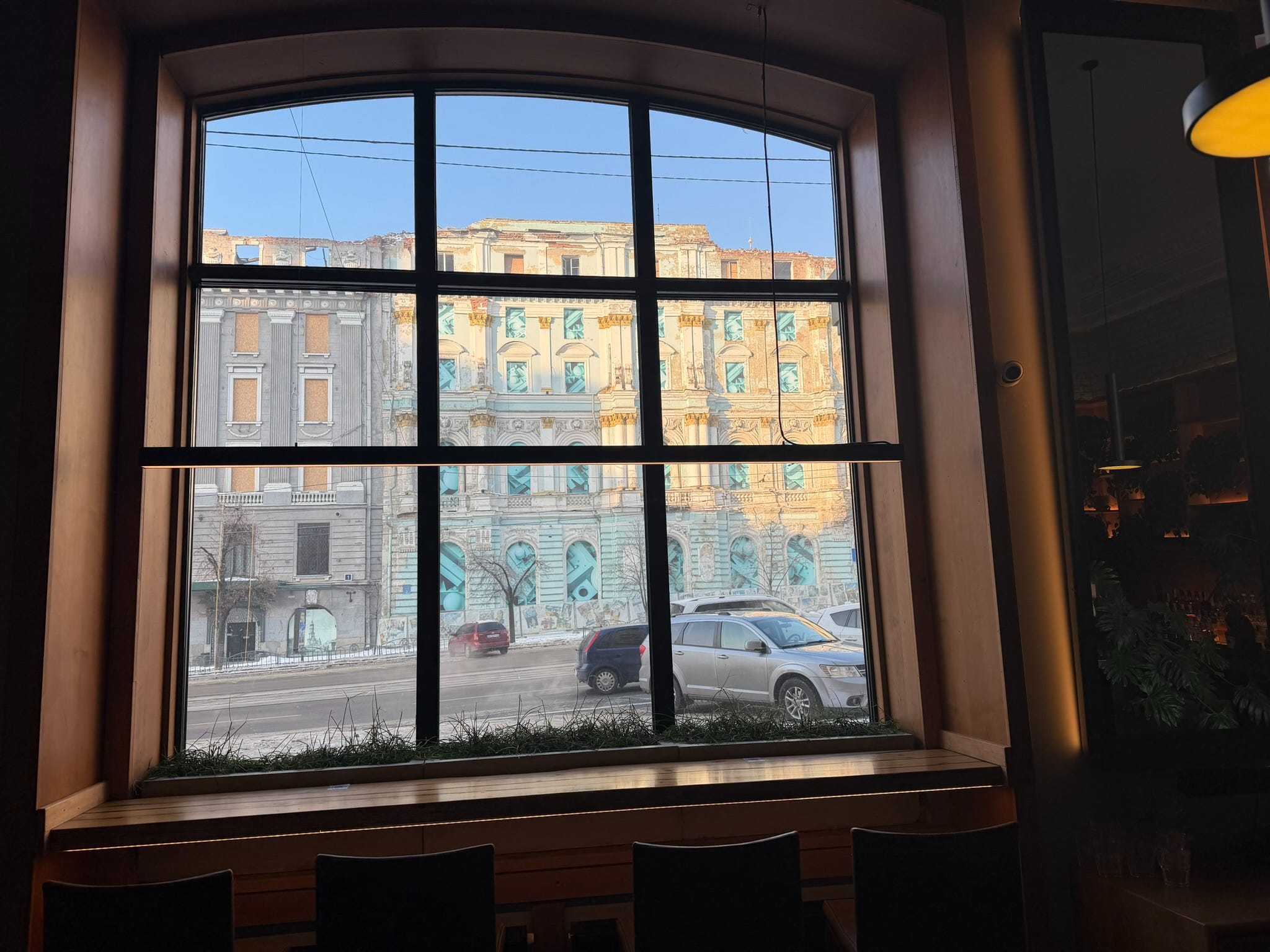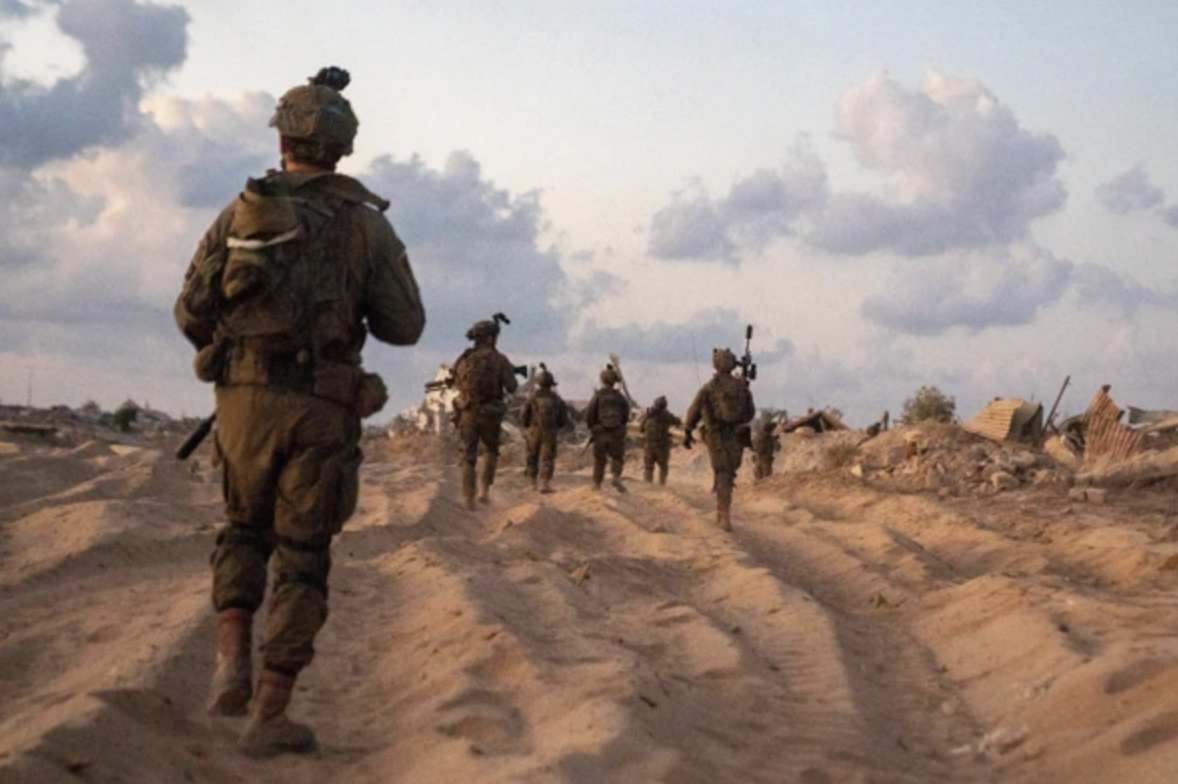War Crimes for Fun and Profit
War influencers are posting evidence of their crimes online. Why has there been so little accountability?

Listen to Freeman discuss war influencers on Lawfare Daily.
In West Africa, out of the spotlight of American media attention, there is a new band of online influencers: war influencers. Rather than harvest attention with makeup tutorials or style advice, war influencers create content from the frontlines of bloody battlefields—amplifying engagement, shaping opinion, and generating revenue through the distribution of graphic images and videos. These unofficial propagandists, using social media platforms to spread information and influence behavior in conflict zones, are ratcheting up ethnic and extremist violence across the region.
In Mali and other parts of the Central Sahel, these war influencers are deeply connected to, and often overlap with, private military companies (PMCs) like the Wagner Group. Over the past few years, the Wagner Group and its affiliates have developed a vast network of Telegram channels and accounts for different types of information operations, regularly posting videos of their violence in the most graphic way imaginable, with disturbing commentary, that not only serve as evidence of their crimes but are potential war crimes in and of themselves. While the online publication of self-documented violence has always been a hallmark of the Wagner Group, its Africa content is especially egregious, compounded by the deep-seated racism ingrained in the group’s ethos. In Mali, where Wagner fighters act as a force multiplier for the Malian Armed Forces’ own human rights abuses and war crimes, the violent content has become increasingly gory and prolific. This graphic content distributed through public Telegram channels deliberately targets, torments, and taunts civilian populations in Mali, especially ethnic minorities of Fulani, Tuareg, and Arab descent.
With so much evidence of blatant criminality, why has there been so little accountability for the Wagner Group? When Islamic terrorists broadcasted beheadings, such as the execution of American journalist James Foley or British aid worker Alan Henning, there was swift condemnation and international response to combat the threat. Yet when Russian mercenaries film and post the torture and beheading of Africans at an even greater volume and frequency, no apparent action is taken. Global justice mechanisms like the International Court of Justice and International Criminal Court (ICC) have taken major steps to hold governments and their leaders accountable for alleged war crimes in Ukraine and Gaza; however, there has been minimal effort to leverage the same legal accountability processes at proxy forces, state-sponsored paramilitaries, and PMCs. This failure of judicial institutions to prosecute, or even investigate, for-profit military forces complicit in international crimes is extremely concerning in light of a resurgence in the guns-for-hire trade.
To address the enormous impunity gap for modern-day mercenaries, the Human Rights Center at the University of California, Berkeley School of Law (where I work) has been using cutting-edge digital investigation techniques to build potential criminal cases against the Wagner Group for their violations of international law in several African countries. In October 2024, before the Trump administration sanctioned ICC personnel, Berkeley’s team of lawyers and investigators submitted an Article 15 communication to the Office of the Prosecutor advocating for the investigation and prosecution of Wagner members for their alleged war crimes and crimes against humanity in Mali. A large portion of the evidence shared in that legal submission comes from Telegram, where the Wagner Group has been sharing incriminating documentation of its crimes to a global audience. This article shares some of the findings in that legal brief to shed light on these unchecked actors, educate the public on the threat they pose, and inspire international law enforcement to act.
Background: Wagner’s Adventures in Africa
The Wagner Group is a Russian PMC, which has been designated as a transnational criminal organization by the United States and delegated as a terrorist organization by the United Kingdom. Wagner PMC has been operating in Africa since at least 2016—initially in Libya, Sudan, and the Central African Republic, and more recently in Mali, Burkina Faso, Niger, and Chad. During this time, the group has developed an expansive Telegram network run by a combination of Wagner’s current fighters, veterans, family members, and fans, along with Russian-trained local bloggers who push Wagner propaganda via their own channels.
This network is the legacy of Yevgeny Prigozhin, the Wagner Group’s former leader who nurtured a diverse media ecosystem to promote the group’s activities and spread the Kremlin’s messaging through deniable channels. Before Prigozhin’s death in August 2023, his information operations played a significant role in Russian propaganda campaigns aimed at African audiences. Following Prigozhin’s death, Wagner-aligned information campaigns saw a shift from a more organized, top-down strategy to the emergence of a less-disciplined, bottom-up online subculture concentrated primarily on Telegram.
In late 2021, the Wagner Group entered into an agreement with the Malian junta shortly after it took power in two consecutive coups. The agreement intertwined military operations against insurgent groups with economic ventures in the gold mining sector. Since then, the group’s presence in the region has expanded significantly, as evidenced by a growing digital footprint documenting their escapades in the Sahel. While a new Russian state-controlled entity called Africa Corps was created by the Ministry of Defense to take control of Wagner forces after Prigozhin’s death, the Wagner Group has remained relatively independent in Mali until recently. On June 6, the Wagner Group announced that it will be officially leaving Mali, however, many of the same commanders and personnel will remain in the country as part of a new unit within Africa Corps called “Wagner Legion Istra.”
“The Horror, the Horror”—on Telegram!
The iconic quote from Joseph Conrad’s 1899 novel Heart of Darkness—“The horror! The horror!”— spoken by Colonel Kurtz in his dying breath, reveals the depth of despair and moral collapse of his character while serving in the Congo. There, Kurtz had become increasingly ruthless and violent, traumatizing those around him and degrading his own humanity. The final scene in the film adaptation, “Apocalypse Now,” set in Vietnam, depicts Kurtz’s haunting compound in the jungle with ritualistic drums, ceremonial animal sacrifice, and severed human heads impaled on wooden spikes.
This devolution of civilization and show of savagery is no longer just the stuff of overwrought fiction. It exists today as a real-world horror—broadcast on the open internet for the world to witness.
Members of the Wagner Group and its cadre of war influencers have cultivated a large Telegram network to amplify the impact of the group’s physical violence in virtual spaces. Telegram’s combination of relative anonymity, encrypted messaging, wide broadcast capability, and lack of content moderation have made it the preferred platform for PMC Wagner. UC Berkeley researchers have identified more than 150 Telegram channels and accounts affiliated with the Wagner Group, the majority of which are public and accessible to anyone online. One of the most popular channels, GreyZone, had over 610,000 subscribers at its peak. Another channel, White Uncles in Africa, which was created in July 2022, saw a massive spike in popularity in May 2024 when it started posting increasingly graphic and gory content. Still growing in popularity, the channel now has over 91,000 subscribers. More recently, White Uncles in Africa created a premium channel in order to put the most horrific content behind a paywall. That channel now has 366 paid subscribers and counting.
For several years, these accounts have documented and celebrated the Wagner Group’s brutality and violence on the ground. These accounts broadcast a persistent stream of depraved, gory, racist, and misogynistic online content, compounding the mental and emotional harm of the group’s crimes. Severed heads of its African victims are hung from bridges, placed in trees, and displayed on spikes. Dead men are exhibited with their pants at their ankles to reveal their castrated corpses. There are endless images and videos of dead bodies, young and old, which have been tortured, dismembered, burned alive, or blown apart with explosives.
One image that is circulated with great fanfare shows the severed head of a man on a spike with his castrated penis in his mouth. This image generates hundreds of thumbs up, hearts, and laughing emojis. The flippant mockery of this man is completely disconnected with the core fact that he was a human being, a son, and perhaps a brother, husband, or father. Whether a civilian or a combatant, this treatment of the dead is unquestionably a violation of the laws of armed conflict.
Making these images and videos even more unsettling is the fact that these war influencers intersperse other types of content as well—safari photographs and animal videos, descriptions of the local cuisine, cool new weapons and vehicles, and Wagner members hanging out with each other. Pictures of soldiers with blurred faces in front of beautiful landmarks are followed by the same faceless soldiers in front of burning houses. The tone, however, does not match the weight and gravity of these elements in “Apocalypse Now” and other sober portrayals. Instead, the mood models the jocular attitude of the mainstream manosphere with “boys being boys,” cracking jokes, and bragging of their conquests.
One channel includes, for example, an exchange on the best methods of beheading (some prefer the sharp edge of a shovel, while another suggests that shooting an AK-47 through the vertebrae and then using a knife is a great “life hack”) followed by a ChatGPT-generated anthem glorifying violence (“[W]e are musicians, but our instrument is an AK … [W]e write symphonies of pain”). In early 2024, a new genre of cannibalism content became increasingly common, with videos that show members of the Malian and Burkinabé armed forces, who fight alongside Wagner, in official uniform, disemboweling and dismembering bodies, and cooking and consuming human body parts. Some channels post images of severed body parts with captions like “time to make Black jelly meat,” “minced meat and dead jihadis,” “the liver is already with the cook,” “meat tastes better when you procure it yourself,” and “cutting and cooking jihadist meat … Mmm.”
In one exchange, a commenter asks the channel administrator, “Why are you cutting off heads, you aren’t ISIS are you?” The administrator of White Uncles in Africa answers, “In the eyes of the enemy you need to be even more terrible. And in front of the head there are all sorts of interesting foreplays with ears, fingers and limbs” [translated from Russian]. While this is a brief discussion in a sea of constant engagement, it lays out the Wagner Group strategy in clear terms. It is trying to out-horror the most extreme terrorist groups by being even more ruthless and cruel. This desire to build a reputation for being the most merciless of mercenaries is only one of the many objectives that the Wagner Group achieves by posting this grisly and highly incriminating content publicly.
Telegram as Weapon, Strategic Tool, and Revenue Generator
The Wagner Group’s information operations are multifaceted, serving different purposes and aimed at different audiences to advance its various goals. While ISIS and other Islamic extremist groups pioneered the use of social media in terrorism campaigns, the Wagner Group has taken online psychological warfare to a new level. This weaponization of social media serves several purposes: to intimidate, torment, and demoralize opposing forces; to mock, humiliate, degrade, and debase victims; and to terrorize, threaten, and coerce the civilian population. This type of content has been posted and distributed on the open internet for several years now with no accountability. Over time, it has grown more graphic and brazen, resulting in real-world harms from psychological trauma to people physically fleeing their homes out of fear.
In addition to using Telegram as a weapon, the Wagner Group’s Telegram network serves as a strategic tool. Off the battlefield, information operations are used to recruit new fighters, spread propaganda, market to new clients, communicate and exchange information and ideas, and cultivate a community. Through the posting of war-related content, such as edited videos of Wagner fighters in combat or training put to hard rock music, the group has cultivated an online community that adulates violence and promotes the Wagner brand. While hard to measure, this unconstrained, border-crossing veneration of violence undoubtedly has deeply harmful effects on the hundreds of thousands of followers of these channels and the people close to them, not just in Africa or Russia, but all over the world.
Finally, Wagner’s Telegram network generates revenue in several ways, including through paid subscriptions and premium channels; donations, crowdfunding, and crypto-backed campaigns; sponsorships, advertising, and affiliate marketing; and merchandise sales. Channels with large followings get paid by companies to promote products. For example, a war influencer might promote military gear or tactical training courses, or link to products that earn commissions on sales through affiliate links. Channels build loyalty and then sell branded items like patches, flags, stickers, and clothing.
These atrocities are reprehensible when carried out by any terrorist group, but there is something even more disturbing about the conduct when it is state sanctioned (in this case, by both Russian and Malian governments) and in pursuit of profit. Unlike non-state armed groups motivated by ideology, the Wagner Group engages in beheadings, castration, torture, and other abhorrent, subhuman behavior primarily for financial gain (Note: the hyperlinks above link directly to graphic content). Unlike state militaries, the group has nothing invested in peaceful outcomes to the armed conflicts in which its members participate—in fact, the Wagner Group benefits from the continuation of war, which drives business.
These modern war profiteers have cultivated a growing audience willing to pay for uncensored battlefield videos, behind-the-scenes militia footage, and insider intelligence. The desire for online engagement with a global audience and the demand for fresh content creates sickening new incentives for bloodshed that are unique to the digital age.
The True Cost of Impunity
Much of this Telegram content depicts criminal conduct or provides evidence of crimes, including both domestic and international crimes. The excessive documentation of the atrocities committed by the Wagner Group on a public platform should, in theory, help efforts to hold the perpetrators accountable. Yet there has been a shocking lack of accountability, or even acknowledgment, of the horrors that online researchers are witnessing on a daily basis.
There are severe negative consequences that arise when individuals or groups can act without fear of accountability for their actions, particularly concerning violations of law or human rights. Impunity erodes trust in state institutions, the justice system, and democratic norms, creating a perception that laws apply only to the powerless, or do not apply at all. When crimes and legal violations go unpunished, doing wrong becomes an advantage, leading to abuses of power, widespread corruption, and the denial of basic human rights. Impunity disproportionately affects vulnerable populations and can lead to a climate of insecurity and injustice, as those in power are not held accountable for their actions. This is particularly true in a situation where the perpetrators are white citizens of a powerful country in the Global North committing acts of violence against African victims in their homeland.
Another concern is the addictive and influential nature of social media, especially on younger generations. The normalization of and desensitization to violence is a serious societal problem, especially when the line between fictional portrayals of violence in movies and video games and actual violence streamed online has become so blurred. The level of impunity felt by the Wagner Group and other modern-day mercenaries who advertise their services and boast about illegal conduct on the internet, is unrivaled and must be addressed. The virality of shocking online videos can proliferate certain behaviors. For example, the Tide Pod Challenge on instagram led to a dangerous trend of young adults intentionally putting single-use laundry detergent pods in their mouths, releasing highly concentrated, toxic chemicals, which led to serious health consequences and some fatalities. It is not hard to imagine how different trends of violence committed by the Wagner Group across the African continent, and made to look cool online, could inspire similar violence in other parts of the world.
In Mali, the Wagner Group’s content has gone far beyond a few viral videos. Rather, it has evolved into a 24/7 Telegram channel network of conflict content—a constant stream of violence so prolific that it does not even break through the news. Most concerningly, Wagner’s online community is global and growing in response to increasingly graphic and gory content. Given that this online violence is trending, and online violence can lead to offline violence, a swift response is imperative.
While this content serves as incriminating evidence of the Wagner Group’s crimes, the lack of legal enforcement mechanisms to prosecute these individuals is a serious dilemma. Although conversations about the responsibility of social media platforms in distributing harmful content are necessary and important, they fail to address the core responsibility of the content creators themselves, who are engaging in the most horrendous of acts and sharing them for online notoriety with few if any consequences.
Allowing the worldwide publication of war crimes on the open web emboldens perpetrators, demoralizes victims, and frustrates national law enforcement, who rarely have jurisdiction to act when crimes are committed outside their territories, even when the effects of those crimes cause harm within them. International justice mechanisms like the tribunal at Nuremberg and its legacy, the International Criminal Court, are unique in their ability to combat emerging transnational threats like the Wagner Group, which is enabled and emboldened through its use of new technologies. As the market for private military forces grows, so too must an investment in the international criminal justice system.
The Wagner Group’s exploitation of information and communication technologies transforms its localized violence into a global issue, broadcasting its crimes to every country in the world. Law enforcement action and accountability are urgently needed to counter this escalating threat, which is not physically restricted to Mali, but is metastasizing across its borders to Niger, Mauritania, Burkina Faso, Algeria, and Chad. While there have been efforts to hold Wagner accountable through sanctions, these efforts have failed to curb the group’s violent conduct. Further, there has been minimal accountability for the African governments that hire the Wagner Group and other PMCs for their complicity in alleged crimes. Holding Malian officials accountable for the Wagner Groups’ conduct (as well as for the conduct of their own armed forces) would send an important message to other foreign governments—that such crimes will not be tolerated.
With state and media attention focused on other significant geopolitical events such as the wars in Ukraine, Gaza, and now Iran, the conflicts in Mali and other parts of Africa have been overlooked for far too long. The clear sense of impunity felt by warring parties to commit the most horrendous acts against the most vulnerable civilians and post them online with no consequence should concern everyone on the planet.
The author thanks her incredibly brilliant and dedicated team for their research and insights, which greatly contributed to this article.




.jpg?sfvrsn=407c2736_6)
